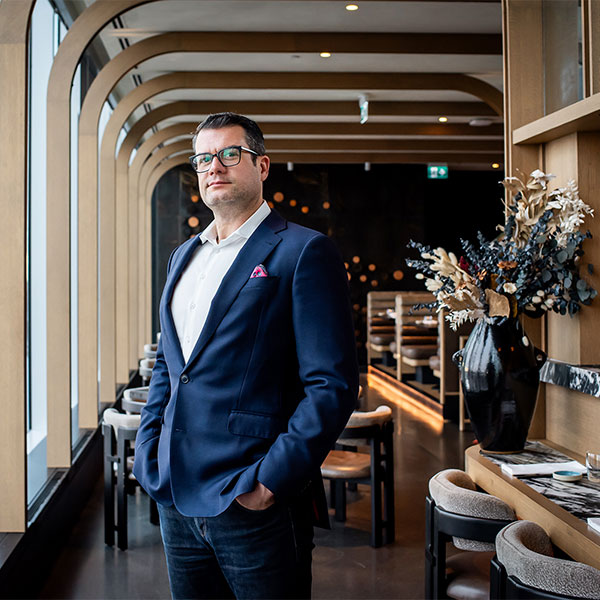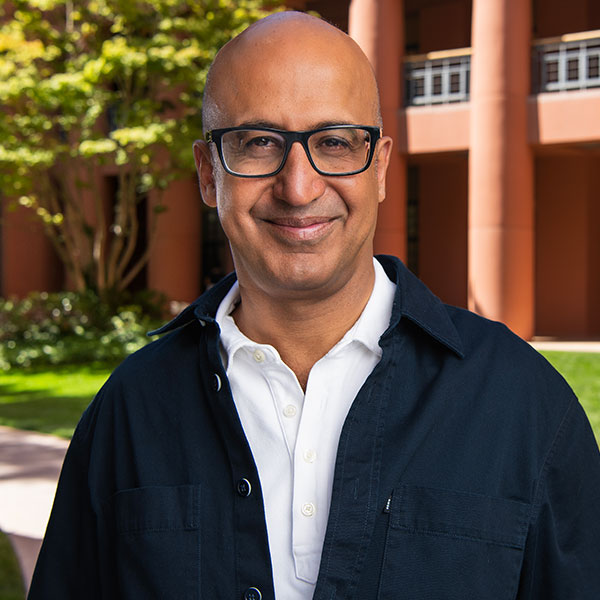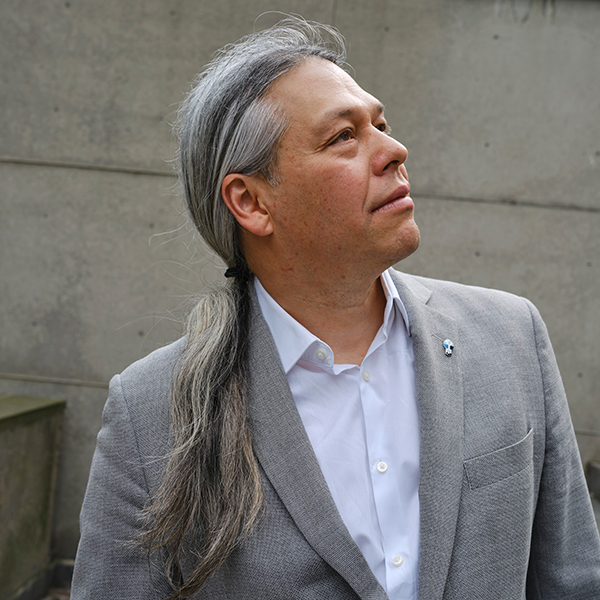With the 2024 Summer Olympic Games coming to Paris this July, the competitive flame continues to burn brightly for McGill alumni who have previously participated in the games. Some will be returning to the Olympic Village in a post-athlete capacity, while others will simply watch and reminisce from afar.
Either way, the experience of representing Team Canada is never far in the rearview mirror for these proud athletes.
“I still get shivers when I remember walking down the tunnel and hearing the roar of the crowd,” says Marie-Andrée Lessard, BCom’01, a three-time national champion in beach volleyball who represented Canada in that sport at the 2012 London Games. She continues to be involved in the Olympics in a key role as senior director of games for the Canadian Olympic Committee (COC).
In that job, Lessard oversees all the important behind-the-scenes logistics that she herself took for granted when she was an Olympic competitor.
“Everything [at the Olympics], from flags to food, none of it is a permanent fixture. We have to build it all from scratch,” Lessard explains.
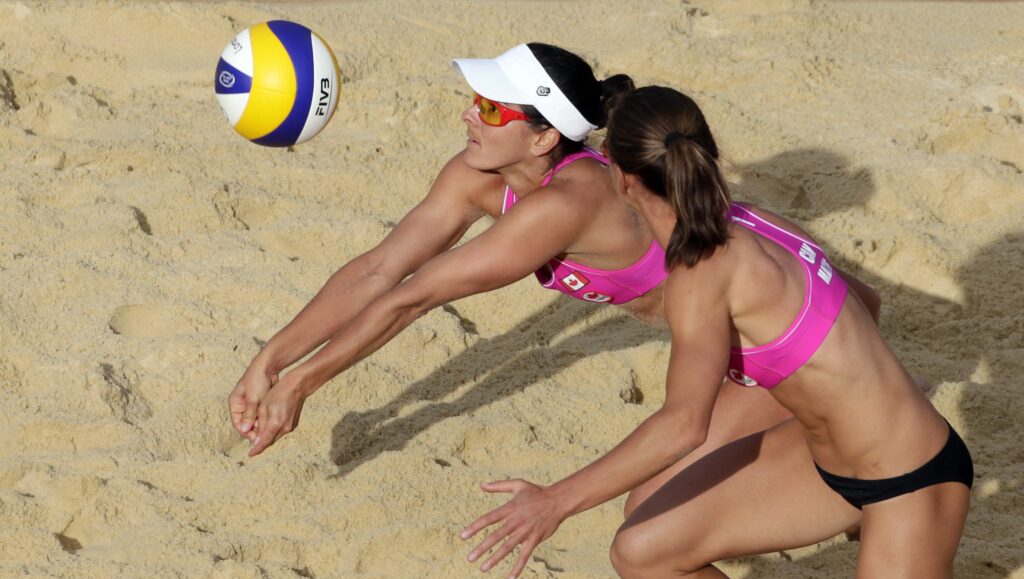
A cargo ship crossed the Atlantic Ocean long before Canadian athletes travelled to Paris, carrying all the necessary equipment and provisions that the Canadian squad members will need for their events. Lessard and her team made sure to pack plenty of peanut butter – a popular food item with Canadian athletes that can be difficult to find in Paris.
Lessard herself will be in Paris – along with her COC team of 16, plus hundreds more on the Canadian mission team and volunteers – to make sure everything goes off without a hitch.
“It’s fine that the athletes have no idea what’s going on behind them,” Lessard says. “I was like that [as an Olympic athlete], just amazed at all the Canadian flags around and having everything I needed. Now to be in service to the athletes is a great feeling.”
In the weeks leading up the Games, with some competitors not yet certain if they’ll successfully make the Olympic team, Lessard says tact is essential when interacting with athletes.
“We’re really trying to be as sensitive as possible, especially since some are still trying to qualify,” Lessard says. “I remember once getting an email that called me a ‘potential Olympian’, and even that created extra angst.”
Two-time Olympic lightweight double skulls rower Douglas Vandor, BSc’98, MSc’01, will be watching the Paris Games from the comfort of his home in British Columbia. He says he’s far enough removed from his own Olympic experience that he can watch the 2024 Games purely for excitement with his two children.
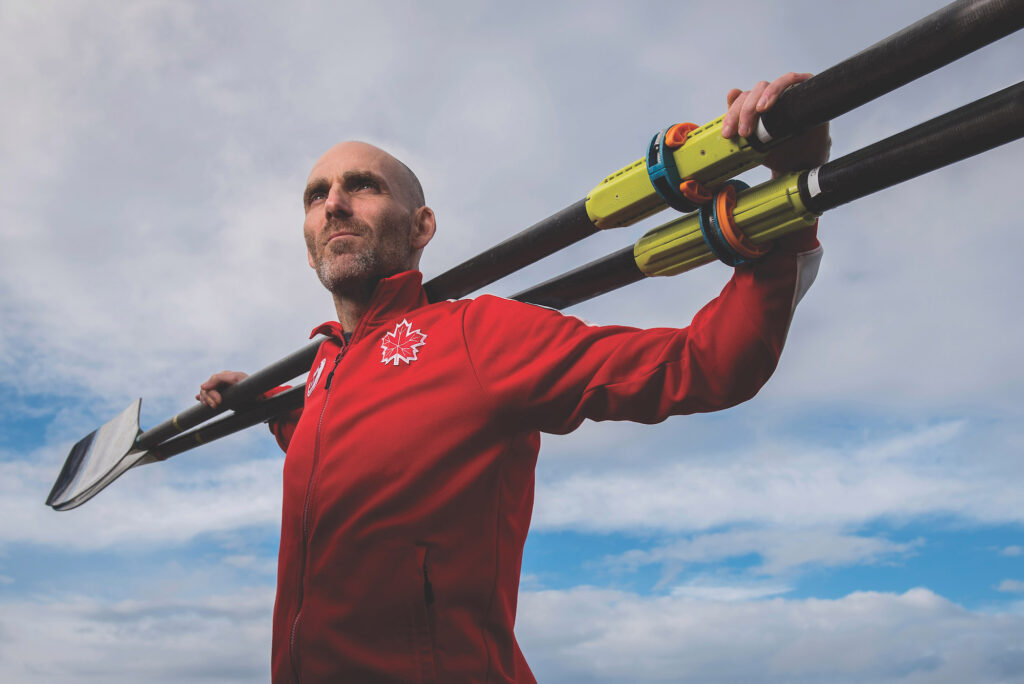
Vandor’s Olympic debut was delayed due to injury – he was a spare in 2004 in Athens – but he got a chance to take part in the Olympics four years later in Beijing before capping off his Olympic career in 2012 in London.
“In a way, the Olympics are just another regatta in terms of preparation and who you compete against,” Vandor says. “But the big difference is the world is also watching. If you’re in love with the process, those four years in between [Olympics] go by quickly, and before you know it, it’s gone in a flash.”
Like many Olympians, Vandor continued to be involved with Canada’s national sports programs after he retired from competition. He was Team Canada’s chef de mission for the 2019 Pan American Games. He also served as an athletic services officer for the Canadian team at the Sochi 2014 Olympic Winter Games, putting his cooking skills to good use by preparing comfort food for the athletes. “I set up a mini bakery in the athletes’ lounge. It was quite a hit.” He only had access to microwave ovens, but still managed to whip up banana bread, chocolate chip muffins, and other treats.
Jeane Lassen, BEd’05, became the first Summer Games Olympian from the Yukon when she represented Canada in weightlifting in Beijing in 2008.
“When I went as an athlete in 2008, I didn’t get to go to the opening ceremonies because I had a back problem and couldn’t risk anything happening,” Lassen says. “But I did get to go in London and [saw] the best concert ever.” The closing event for those Olympics featured performances by the Who, George Michael, Annie Lennox, and the Spice Girls.
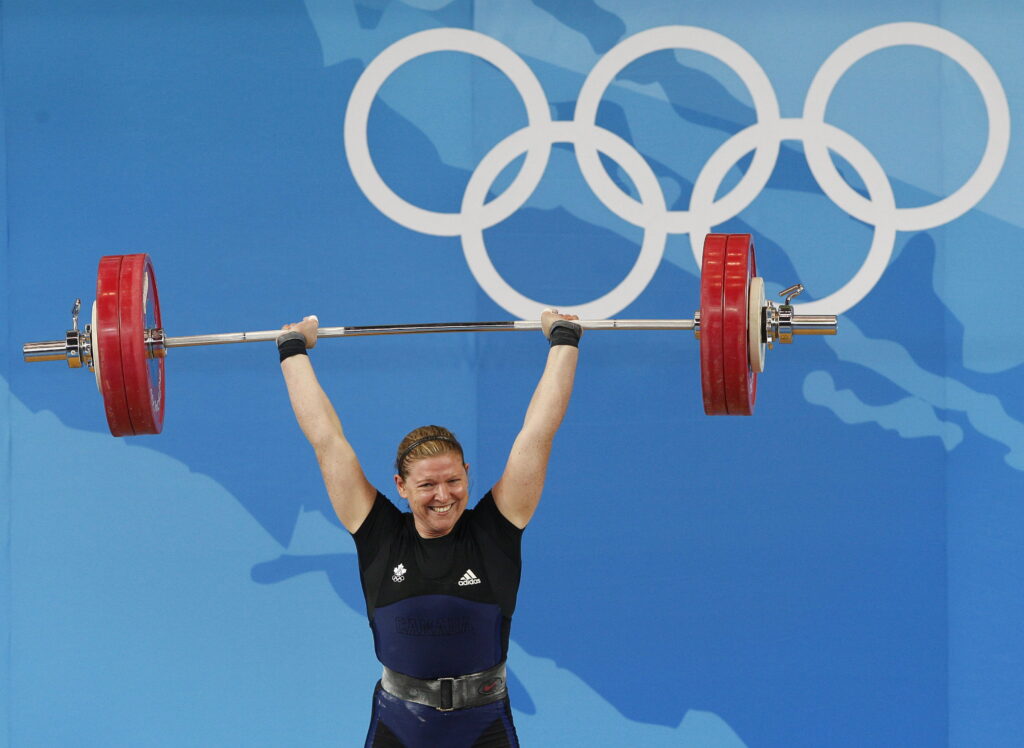
Lassen’s Olympic experience had its share of ups and downs. In 2008, weightlifting was a “have-not” sport, meaning an elementary school in Whitehorse adopted Lassen’s Olympic cause and fundraised to get her to the Games. “And they had to watch back home in the middle of the night on 2008 Yukon internet, which wasn’t good,” Lassen recalls. She originally finished eighth in her event, but over time, due to other athletes being retested for banned substances, Lassen ended up in fifth spot.
“If I had made one more lift out of six, I would be a medalist right now,” Lassen says. “It’s important to remember medals are cool, but they don’t change who you are.”
In 2012, Lassen injured her back again. She wasn’t able to compete, but still took part in the London Games – this time as one of her former Olympic teammate Christine Girard’s coaches. Lassen played a supportive role as Girard became Canada’s first Olympic gold medalist in weightlifting.
Lassen says her favourite Olympic experience might be the 2018 Winter Games in Pyeongchang, where she served as an athlete mentor for the Canadian team.
“It’s life changing to be able to take all your lessons in sport and give back,” Lassen says. “There are many intolerable feelings about being in the Olympics. You’re trying to perform. It’s not comfortable. You need to be very comfortable with being uncomfortable.”
That discomfort can continue once an Olympic career is over. Organizations like the COC are getting better at handling the inevitable post-games blues that hit athletes, but it remains a question every athlete contends with: What do I do after the Olympic torch is extinguished?
Lessard didn’t know what she wanted to do after retiring in 2012. She published a recipe book, 100 Athletes, 100 Recipes (athletes who supplied her with recipes included Mikaël Kingsbury and Chantal Petticlerc). She was planning a sequel when the COC approached her about being part of its mission team for the 2014 Games in Sochi. She has been involved in a variety of roles for the COC ever since.
“There are many intolerable feelings about being in the Olympics. You’re trying to perform. It’s not comfortable. You need to be very comfortable with being uncomfortable.”
Jeane Lassen, former Olympian
While he was still competing, Vandor took up writing. “It was about being able to forget about rowing for a while,” says Vandor. “And then, because I had done something completely different, I felt like I had reset.” He continues to write, publishing two children’s books – Salmon on Toast and I Hate Bouillabaisse/Je déteste la bouillabaisse! – in recent years.
After retiring as an athlete, Lassen earned a master’s degree in counselling and now works at a First Nations health clinic in Whitehorse as she prepares to launch her own private practice.
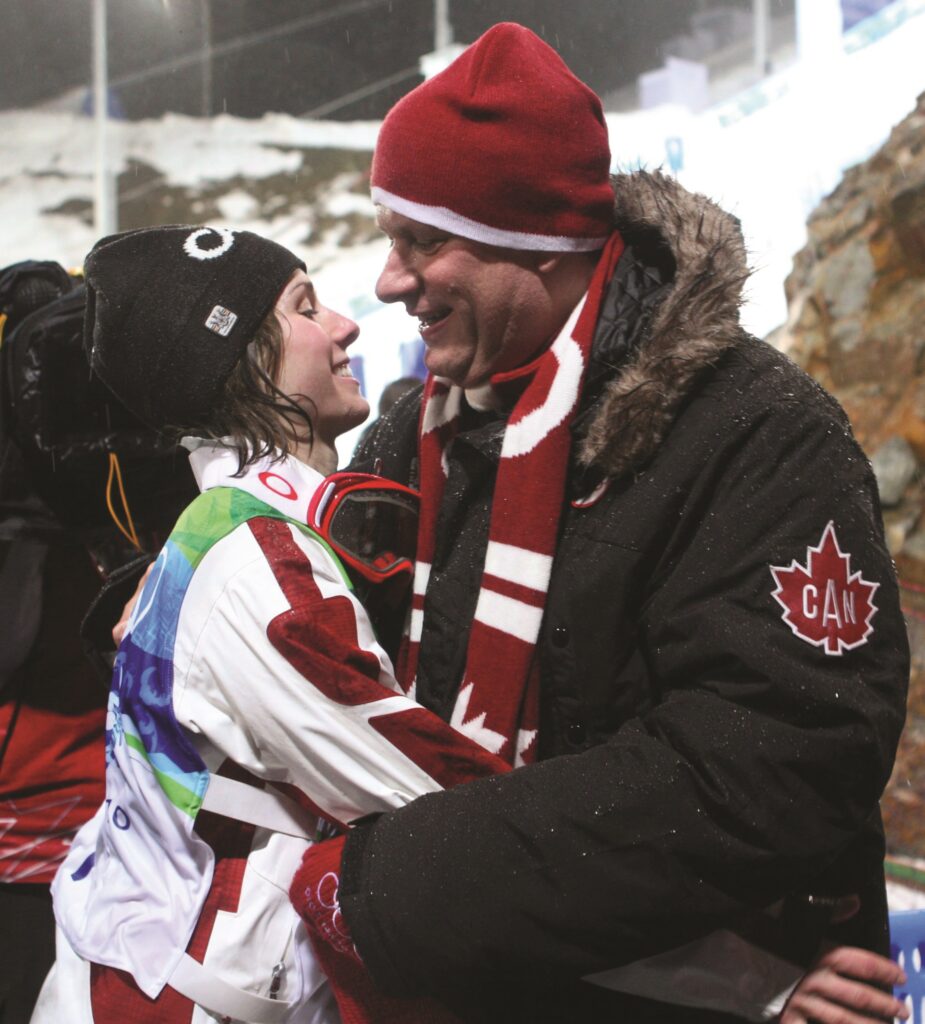
One fellow Olympian who called Lassen to provide post-career support was Jennifer Heil, BCom’13 – a gold medal winner in Turin in 2006, and a silver medalist at the 2010 Vancouver Games. After Heil’s career ended, she returned to McGill to complete her business degree in 2013 and is now an entrepreneur in Silicon Valley.
As a co-founder of B2Ten, Heil helped launch a private sector initiative that has provided crucial funding support for dozens of Canadian Olympians over the years. More recently, she created RYA Health, a medical startup that aims to use AI and other technological approaches to provide women with more timely healthcare services. The idea originated with the frustrations that Heil experienced herself in contending with health issues after the birth of her second child.
“As an athlete, I had access to the top doctors and physios,” she says. “When I retired and had children, I struggled to find support for women-specific issues. It took me two years of advocating to find the care I needed.”
Since the age of nine, Heil says she dreamed of both reaching a podium as an athlete and becoming an entrepreneur.
“It’s not a fluke. My Olympic career was very entrepreneurial,” Heil says. “I’m a skier from the Prairies. It took a lot of resilience, but also a willingness to shift systems. This feels like a continuation of that spirit.”
Today, Heil is recognized as one of the all-time greats in her sport, but her first Olympic experience at the 2002 Salt Lake City Games wasn’t what she was hoping for.
“I was just out of high school and standing on top of the mountain with 100 million live viewers around the world, I’ll say now that I didn’t have the tools to command that performance,” she says. She finished in fourth place.
But representing her country in Vancouver “was like winning the lottery. We knew it would be big, but we didn’t realize just how special it would be. You could feel the whole mountain shaking in support. I could feel it in my chest.”
Whether an athlete has taken part in one Olympic Games or in several, it’s that experience of having participated that puts them in exclusive company. And it’s not just the singular moment that brings them together: it’s the years of preparation and intense focus demanded of all Olympians.
It’s something only these athletes can truly understand. And every time the Olympic torch is relit for another edition of the Games, that indescribable feeling comes rushing back.
“Being an Olympian, in a way, it’s like getting a degree,” Lassen says. “It connects you to this family in countries all over the world.”
